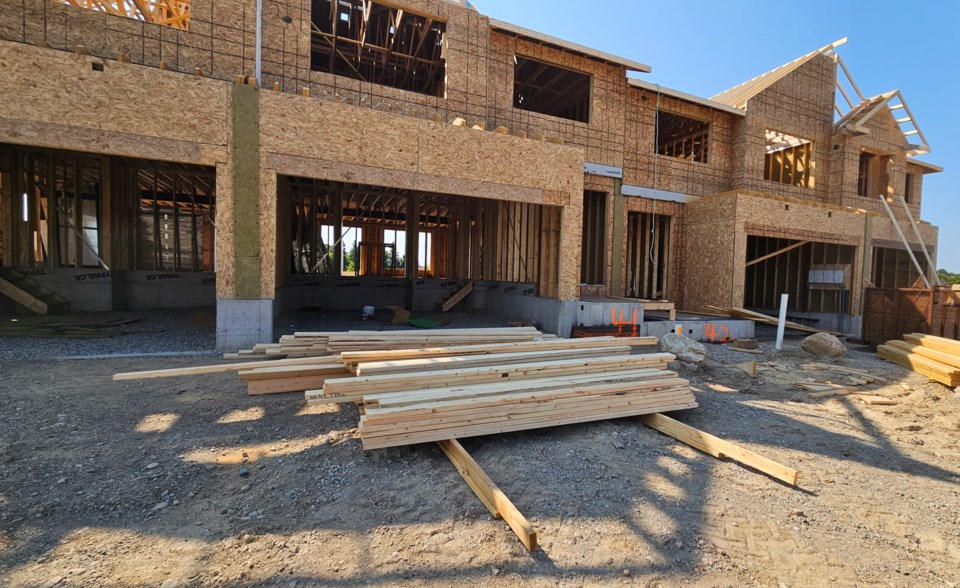A slate of financial aid programs meant to spur the creation of new affordable housing units is in the works, though some people believe they don’t go far enough to help low-income residents.
City staff presented draft program plans during a public meeting held during Wednesday’s council meeting. Funding for two would use previously announced $21.4 million federal dollars, while the third is to come from property taxes in future city budgets.
“I’m looking forward to seeing it implemented,” said Coun. Rodrigo Goller of the plans.
“This could move the needle,” added Coun. Dominique O’Rourke, referring to the city’s low vacancy rate and rising housing prices in the city.
Here’s a summary of each of the draft programs making up the affordable housing community improvement plan (CIP), which will be presented to council in finalized form in January:
Vacant residential unit and vacant conversion grant – Up to $3.5 million is available for grants approved before the end of 2026 in support of converting uninhabitable residential and/or vacant commercial/institutional/office space into affordable housing units. Units are to remain affordable for 25 years. Grants of up to $100,000 per affordable unit will be available, with up to $20,000 per affordable unit that meet certain criteria above and beyond the minimum building code requirements.
Additional dwelling unit grant – Up to $1.5 million is available for homeowners to create an accessory unit, with approval required by the end of 2026. Units must remain accessible for 15 years. Another $500,000 is available for projects with multiple units. Up to $25,000 per unit may be provided.
New affordable residential unit grant – funding to assist with the development of new, purpose-built affordable rental or ownership units. to remain affordable for 25 years. These grants are valued at up to $20,000 with an additional $20,000 if public infrastructure upgrades are needed. An additional $10,000 will be available for affordable units that meet certain criteria. In cases involving three to six affordable units, up to $10,000 will be available, with an additional $20,000 if public infrastructure upgrades are needed. An additional $10,000 will be available per affordable unit that meets certain criteria above and beyond the minimum building code requirements.
The provincial government set the affordable ownership price in Guelph at $398,800 or less, with affordable monthly rental prices determined by the type of unit – $1,160 or less for a bachelor unit, $1,508 or less for one bedroom, $1,646 for two bedrooms and $1,695 or less for three bedrooms.
According to rentals.ca, the average one-bedroom apartment in Guelph cost $2,044 and a two-bedroom rental cost $2,399 in October. Guelph is identified as the 12th-most expensive city for rentals in Canada.
On Wednesday, several delegates urged council to go further with the idea and create a property tax deferral program and the deferral of municipal application and permit fees until construction is ready to begin.
“Adding these two recommendations to the CIP, provides a mechanism that can generate thousands of units without the need for any grants or subsidies,” said Mike Labbe, founder of Home Opportunities Non-Profit, told council. “Supporting our request will go a long way to allowing non-profit housing organizations - like Home Opportunities - to accelerate the delivery of all the affordable housing necessary for Guelph residents, and employers to grow their workforce, and sustain economic development.”
Home Opportunities is looking to build two 12 to 20-storey apartment buildings and 247 townhouses on a nearly 20-acre site just west of Bishop Macdonell Catholic High School. It’s to be run under an affordable home ownership model.
“It’s a really good start for Guelph to create some truly attainable, affordable housing,” said Morgan Dandie of LilyPad Communities, a newly formed group that aims to help low-income families and individuals find affordable and attainable housing.
“We wonder if it goes far enough to be truly effective. The figures provided seem inadequate to incentivize homeowners to provide affordable housing versus market rate.
“Let’s keep low-income families and individuals housed.”
Guelph resident Susan Watson noted the programs don’t take into account household utility bills, which can impact the affordability of housing.
Eric Martin, a local landlord with five bungalows, asked council to eliminate the three-unit minimum for the new affordable residential unit grant to make it accessible to more people.
In addition to receiving public comments, city council chimed in with its feedback on the plans.
O’Rourke expressed concern owners of affordable units could make them available for short-term rentals, such as AirBnB, and “become an income stream.”
Coun. Erin Caton stated the programs don’t support “deeply affordable” units and called for initiatives that could bring the rental cost down enough that people who receive financial disability support could afford them.
In a motion that was unanimously approved, Goller asked staff to prepare a report on the feasibility of establishing a property tax deferral program and the deferral of municipal application and permit fees until construction is set to begin.
